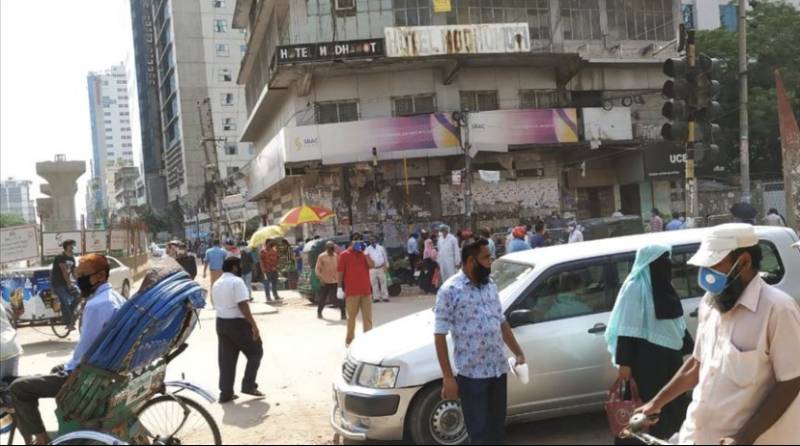Bangladesh registered as many as 40 deaths from the novel coronavirus on Sunday -- the highest since the first fatality was confirmed on March 18 -- as the country lifted an over two-month nationwide lockdown.
With the new cases, total fatalities rose to 650, said Nasima Sultana, one of the directors at the Directorate General of Health Services (DGHS), during a regular online media briefing.
Among the deaths, 33 were men and seven women, she added, saying that some 1.38% of the total infections died.
Before the latest casualty report, Bangladesh's highest number of fatalities in a single day had been 28.
Meanwhile, Bangladesh also recorded some 2,545 positive cases, also a single-day high for the country since the first case emerged on March 8, raising the infection tally to 47,153.
The country also increased testing numbers with a record of 11,876 in 52 labs across the country in the past 24 hours, the DHGS official said, adding that a total of 308,930 samples had tested to date.
Some 406 more COVID-19 patients recovered for a total of 9,781 people, 20.74% of overall cases.
Bangladesh also marked the first working day in the country after its two-month coronavirus lockdown amid visible scenes of breaching social distancing and health guidelines.
The South Asian country with a population of 165 million imposed a nationwide lockdown on March 26 in the wake of the coronavirus and extended it until May 30 with several extensions.
The government, however, eased the lockdown at a time when the pandemic began to escalate with the new casualty records, raising concerns that the outbreak may yet worsen in the coming days.
People have since been seen to gather closely at different busy crossings in the capital Dhaka while waiting for public transport, while others have been seen packed in vehicles.
The Bangladesh Doctors' Foundation (BDF) chairman Dr. Shahed Rafi Pavel told Anadolu Agency that the decision to ease the lockdown could endanger the country.
He warned that intensified infections could force authorities to re-impose a lockdown as the peak may come at a later date due to intermittent easing of measures.
Pavel said that allowing residents of the capital to leave ahead of the Muslim holiday Eid al-Fitr could expose villages across the country to virus infection, adding that "there was no scientific study before easing nationwide lockdown that took the economic losses in the country."
Hospitals are already filled with coronavirus patients and if the rapid infection continues, we fear we will not deal with such a situation, he said.
The coronavirus pandemic has killed just over 370,000 people worldwide, with total infections exceeding 6.1 million and more than 2.6 million people having recovered from the disease, according to figures compiled by the US-based Johns Hopkins University.






